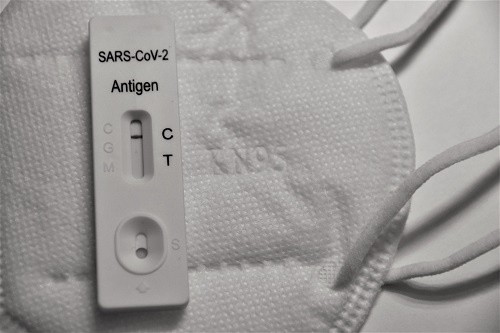The EU MDR Implementation Date and the Impact of Covid 19 Pandemic

Making a medical device means you’re in the business of saving lives—and that’s nothing to sneeze at. As if that wasn’t enough pressure, you now have to deal with the labyrinthine EU certification process. But there’s no need to panic because we’re here to guide you through it.
Medical device firms operating in the European Union have circled the EU MDR implementation date, May 26 2021 in red on their calendars. As always, products entering the EEA must comply with EU Medical Device regulations, or they will be banned. However, work on recertifying products sold under the new directive for medical devices will probably continue for years as all products sold in Europe must be certified.
Due to the impact of COVID-19 on businesses, manufacturers should consider the impact of supply chain disruptions and reach out to their Notified Bodies to discuss any changes that may affect their medical device registration under MDR.
What does the deadline mean?

The key to the EU MDR is simple: making sure devices are safe, effective, and able to be used by healthcare professionals. It’s been 3 years since the new EU MDR was put into place, and now it is time for companies to comply with the new requirements.
In general, these are the things you will need to do:
- Align your business with the EU MDR compliance
- Get a Unique Device Identification (UDI) system in place
- Have a quality management system (QMS) that covers product development and post-market surveillance activities
- Establish a product traceability system throughout the supply chain
- Ensure the Vigilance System supports post-market surveillance activities.
There is no denying that the covid 19 pandemic had a significant effect on medical device manufacturers whose devices were not CER certified or were in the process of getting certified. So, just having a checklist on how to adhere to MDR regulations will not be enough.
A good look at the exact sites you are losing money and time due to the covid pandemic needs to be addressed.
Impact of Covid 19 pandemic on clinical trials
Researchers in the medical device industry has been working on ways to conduct clinical trials with COVID-19 guidelines in place. The hope is this will ensure that studies can continue according to Medical Device Regulation even during full lockdowns and that new medical devices can be tested. Although, as the lockdowns have been lifted in most countries, the effort is now to see how to complete the clinical trials according to EU MDR as fast as possible without any hindrance.
Regardless, there is an ongoing debate about how clinical trials should be conducted during the COVID-19 pandemic. In particular, there are concerns that safety standards could be compromised in order to get results more quickly.
Research ethics committees have been advised that they should adopt a “flexible and pragmatic approach” to approving clinical trials during the pandemic, to allow for them to continue where possible. The Clinical Trials Directive was also suspended for one year from 22 March 2020, allowing researchers to conduct studies without having each amendment approved by regulators during this period.
The impact of the global health crisis on clinical trials can be summarized as follows:
- Delays in new trial start-ups
- Delays in trials reaching enrollment targets
- Delays inpatient visits and follow-ups
Here are some of the considerations for conducting clinical trials during COVID-19:
1. Risk assessment
What is the risk to patients, trial staff and investigators? Are there risks associated with travel for patients or trial staff? How many people will be involved?
2. Clinical trial protocols
How much monitoring will be needed? Can it be reduced or simplified without compromising safety or efficacy data? Are there any changes that need to be made to the study protocol?
3. Data collection
What resources are available to remotely collect data on a regular basis? Will remote monitoring systems need to be put in place?
4. Accessing study material
What impact will disruptions in supply chains have on the manufacturing of medical devices?
Did Covid 19 Impact Medical Supplies?
Most likely, the answer is yes. The current pandemic and resulting lockdown have caused a major disruption to the global economy. Manufacturers of medical devices and equipment may see a significant shift in their supply chains and operations due to this public health crisis. Not only is COVID-19 having an impact on business as usual, but it is also affecting the regulatory landscape.
Many medical device companies are currently seeing a significant slump in sales due to the closure of elective surgeries and procedures. This decline in sales has made it difficult for some manufacturers to justify continuing manufacturing or maintaining supply chains for certain products. As such, some manufacturers may stop producing or cease distribution of certain devices that are not seen as mission-critical during this time. For others, their supply chain has stopped due to lack of demand (where suppliers who used to supply to several companies) or lack of personnel.
So, there is a significant gap in the supply chain and medical device production. Also, given that many companies are currently experiencing resource constraints due to a shift in focus or increased workload, some manufacturers are struggling to even produce their medical devices. Therefore, a more centralized effort is needed to control the damage caused in the supply chain by the covid 19.
Covid 19 delays and its impact on medical devices regulation
For medical device manufacturers currently preparing for the Medical Device Regulation (MDR), many of the pre-market requirements are still in place. The requirements for clinical evidence and clinical investigation plans will be carried out as previously planned. In contrast, some post-market activities will change, but they may open new opportunities as well. For example, Manufacturers may need to prioritize their vigilance and post-market surveillance activities to focus on those products that are most in-demand due to the pandemic.
The notified bodies will also need to keep updating their requirements considering the current situations. As a manufacturer, one needs to be ready for all probability including remote inspections.
The next steps

Whether you are a manufacturer currently certified under the Medical Devices Directive (MDD) or certified under another global system prior to May 26, 2020, you had an additional year to attain certification under MDR. So, if you haven’t already, get a solid PMCF plan for your device. If your clinical trial is underway, hire some experts for the literature review and an EU MDR checklist.
For now, the best course of action for manufacturers is to adhere to the MDR as possible and to shift their preference to producing medical devices that are more needed in the current situations rather than what they usually manufacture. Post covid medical devices like ventilators, masks, covid home testing kits could be good sectors to expand into.
